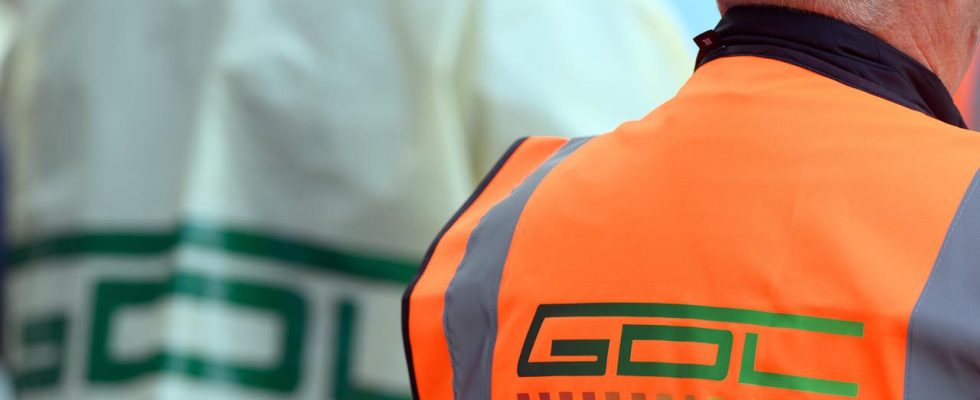Deutsche Bahn accuses the train drivers’ union GDL of not being allowed to conclude collective agreements. The reason is conflicts of interest because of their temporary worker cooperative. Now the dispute is going to court.
In the ongoing collective bargaining dispute with train drivers, Deutsche Bahn is having the court examine whether their GDL union is currently still eligible for collective bargaining. The background to this is that the German Locomotive Drivers’ Union (GDL) may have lost its ability to negotiate collective agreements by founding its temporary worker cooperative Fair Train, said Deutsche Bahn HR Director Martin Seiler.
The railway filed a declaratory action with the Hessian State Labor Court on Tuesday. The state-owned company argues that there are personal connections and serious conflicts of interest. GDL and Fair Train essentially concluded a collective agreement with themselves.
Possible consequences for Collective bargaining and strikes
The court confirmed receipt of the lawsuit. The GDL initially stated that it would not comment on the lawsuit because the GDL did not have it and the specific content was not known. “The GDL acts as an employer and as a union at the same time,” said Seiler. This raises the question of what exactly the GDL is.
The train drivers’ union has so far refused to clarify this at the negotiating table. “We need to know with legal certainty whether we have a collective bargaining partner who is capable of acting. After all, we are in an ongoing collective bargaining round,” said the manager.
Deutsche Bahn assumes that the GDL has lost its ability to negotiate tariffs due to the founding of Fair Train. The group sees itself supported by several legal opinions. “If DB’s opinion is confirmed by the court, then the GDL can no longer conclude effective collective agreements: neither with DB nor with other railway companies,” explained the railway. The GDL would then no longer be allowed to strike “because the legitimate aim of the strike, namely the conclusion of a collective agreement, could not be implemented.”
Accusation more serious Conflicts of interest
The DB argues that the inability to negotiate collective agreements arises, among other things, from personnel and organizational connections in the management positions of GDL and Fair Train. By founding its temporary worker cooperative, the union not only acts as a collective bargaining partner, but also as an employer and has essentially negotiated and concluded a collective agreement with itself. The railway sees this as an impermissible self-dealing with significant conflicts of interest, because the people involved at GDL and Fair Train are largely the same.
“In addition, when introducing its temporary worker cooperative, the GDL made it unmistakably clear that the Fair Train was aimed exclusively at the DB because it was only intended to poach train drivers from there,” criticized the railway. At the presentation of the Fair Train in June, GDL boss Claus Weselsky announced that they wanted to use the new temporary employment agency to capture staff from the railway. The company is expected to put up “the strongest resistance, and that is also calculated.”
As part of the current collective bargaining dispute between the GDL and Deutsche Bahn, the union is calling for a reduction in working hours from 38 to 35 hours per week for shift workers with full wage compensation. The railway rejects this. The talks were declared a failure at the end of November and the GDL has already received the green light for indefinite strikes. Travelers must expect longer industrial disputes from January 8th.
Heiko Schneider, HR, tagesschau, January 3rd, 2024 1:29 p.m

